- »Possible Worlds« Stockholm, 2023
- »On Coexistence, Rivers and Stories« Berlin, 2023
- »Of Domes and Toilets - Architecture and Social Architecture are One« Berlin, 2019
- »Indigenous Knowledge« Stockholm, 2016
- Group Exhibition »DRAWN« Berlin, 2014
- »In a New Land« Berlin, 2011
- »Burning Man« Stockholm, 2010
- Group Exhibition »SUMMER SHOW« Berlin, 2009
- »Rural Studio: The Lucy House Tornado Shelter« Berlin, 2007
- »Caracas: Dry Toilet« Stockholm, 2004
- »Caracas: House with Extended Territory« Berlin, 2003
- Group Exhibition »Through a Sequence of Space« Berlin, 2002
- cv-mp-2023.pdf
-
Marjetica Potrč: The Soweto Project, Jurisdictions, MIT Press, 2017
-
Andres Lepik and Marjetica Potrč: Cities in Transition, 2014
-
Twylene Moyer: Marjetica Potrč – The Art of Sustainable Self-Sufficiency, 2011
-
Marjetica Potrč: New Territories in Acre and Why They Matter, e-flux Magazine, 2009
-
Jennifer Higgie: Marjetica Potrč. Form Follows Function, Frieze Magazine, June 2006
-
Jan Verwoert: Marjetica Potrč. Confessions of a Global Urbanist, Afterall Magazine, Spring/Summer 2004
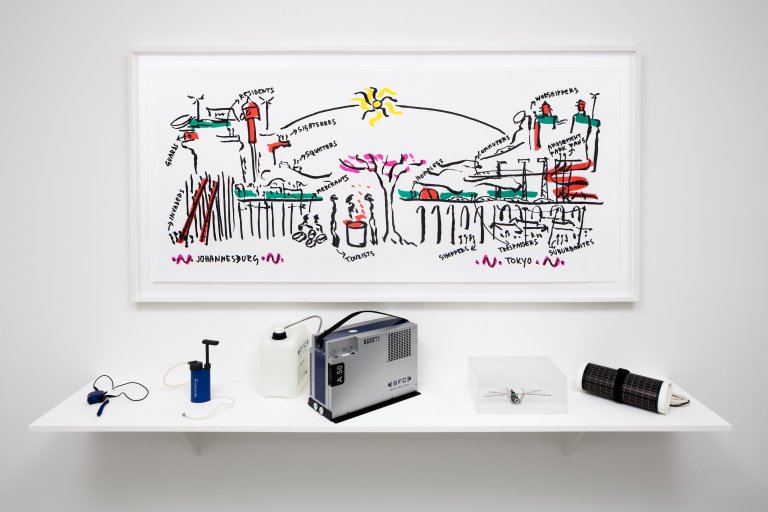
Power Tools for Urban Explorers, 2005, Experimental prototypes and utilitarian objects on shelf, dimensions variable; printed drawing 85 x 185 cm
Marjetica Potrč »Indigenous Knowledge«
Stockholm, May 19, 2016 - June 23, 2016
Slovenian artist Marjetica Potrč is known for case study architectural structures, exhibited as installation and sculpture, diagrammatic works on paper and large scale collaborative on-site projects, often dealing with and within the urban fabric. Her multi-disciplinary practice incorporates the fields of art, architecture, anthropology, ecology, sustainability and other social sciences. In her work Potrč emphasises and celebrates self-reliance and individual empowerment, problem-solving and strategies for the future.
In this exhibition Potrč focuses on the theme of Indigenous Knowledge in a series of works on paper and experimental prototypes and utilitarian objects titled Power Tools. Much of the material comes out of research the artist made in the isolated Croa River community in the Brazilian state of Acre, Amazonia. The area of about eighty thousand hectares of Amazonian forest, inhabited by approximately four hundred families, is an extraction reserve, a new territory defined by cultural identity, self-organisation, sustainable growth, and local knowledge. In short, such new territories suggest forms of living together that transcend neoliberalism and its understanding of individualism, liberal democracy, and market capitalism and can inform alternative perspectives to current discussions around federalism and the EU.
Potrč points to the importance of exchange of knowledge between indigenous communities and Western theorists and scientists – the rural and the urban knowledge - in order to develop a sustainable human relationship with nature in the Anthropocene age. The exhibition draws on The School of the Forest project organised by Potrč at the PAMM Pérez Art Museum Miami (2015), where anthropologists discussed the contribution of indigenous knowledge and practices to the new culture of urban living. The drawings reference new social agreements, such as the Right to the City, popular movements and Florestania citizenship, a new citizenship of the people of the forest in the state of Acre, based on values such as the cultivation of small-scale economies, the preservation of local knowledge, and control over their land. In the works Potrč draws parallels between the indigenous communities in Amazonia and the socio-political organisation of the Sami - the indigenous people of northern Scandinavia.
Florestania, a series of 12 ink on paper drawings, represents a key work in the artist’s oeuvre. The drawing narrative describes the Croa community’s practices, identity, independence and interconnectedness with their neighbours and the world. The Earth Drawings, new works on paper, are diagrams that indicate the relationships and interconnectedness between places and ideas, originating from the extensive period Potrč stayed in Amazonia and learned from the communities who live there.
The Power Tools series are composed of experimental prototypes and readymade utilitarian objects that manifest aspects of self-reliance and independence, in both rural and urban contexts. They combine objects from indigenous cultures, such as Amazonian baskets, and gadgets equipped with advanced technologies used by urban migrants and as survival gear in Swedish wilderness.
Marjetica Potrč is an artist and architect based in Ljubljana and Berlin. Her work has been featured in exhibitions throughout Europe and the Americas, including the São Paulo Biennial in Brazil (1996 and 2006), the Venice Biennial (1993, 2003, and 2009) and Sculpture Project Münster (1997); and she has had solo shows at the PAMM Pérez Art Museum Miami, FL (2015), STUK arts centre, Leuven, Belgium (2013), Eli and Edythe Broad Art Museum, Michigan State University, East Lansing MI (2012), Barbican Art Gallery in London (2007), Kunsthalle Fridericianum Kassel (2004) and the Guggenheim Museum in New York (2001). Her many on-site installations include: Of Soil and Water: King's Cross Pond Club, London, UK, Project by Marjetica Potrč and Ooze (2015), The Wind Lift, Lookout, Folkestone Triennial 2014, Folkestone, UK, Project by Marjetica Potrč and Ooze (2014), Between the Waters: The Emscher Community Garden for “Emscher Kunst” (2010), The Cook, the Farmer, His Wife and Their Neighbour (Stedelijk Goes West, Amsterdam, 2009), and Dry Toilet (Caracas, 2003). She is the recipient of numerous grants and awards, most notably the Hugo Boss Prize (2000) and the Vera List Center for Arts and Politics Fellowship at The New School in New York (2007).
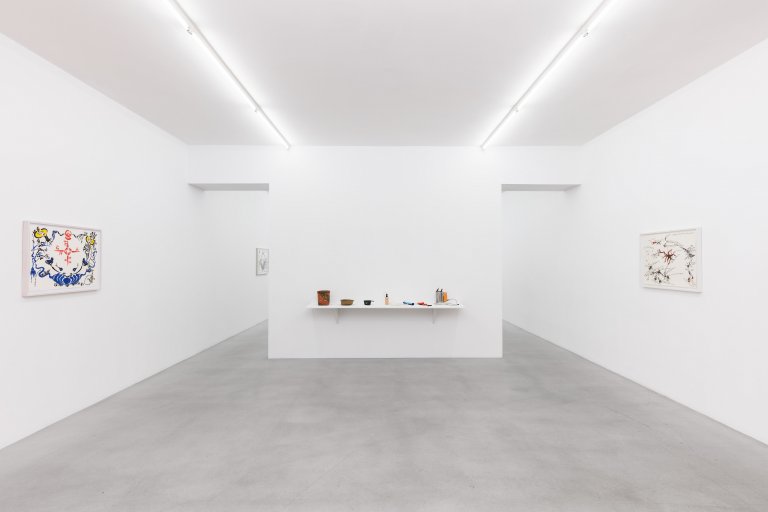
Installation view
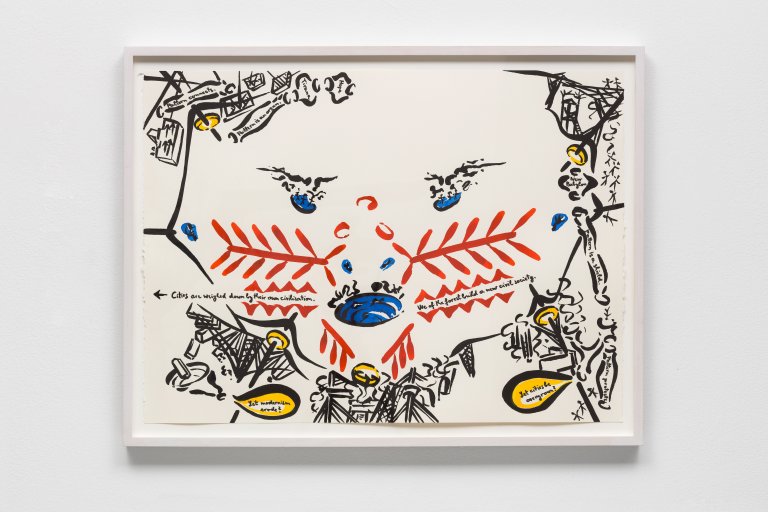
The Ashaninkas, Along with Their Friends in Tirana and New Babylon, Contemplate the Power of Pattern, 2009, ink on paper, 56 x 76 cm, framed 63 x 83 cm
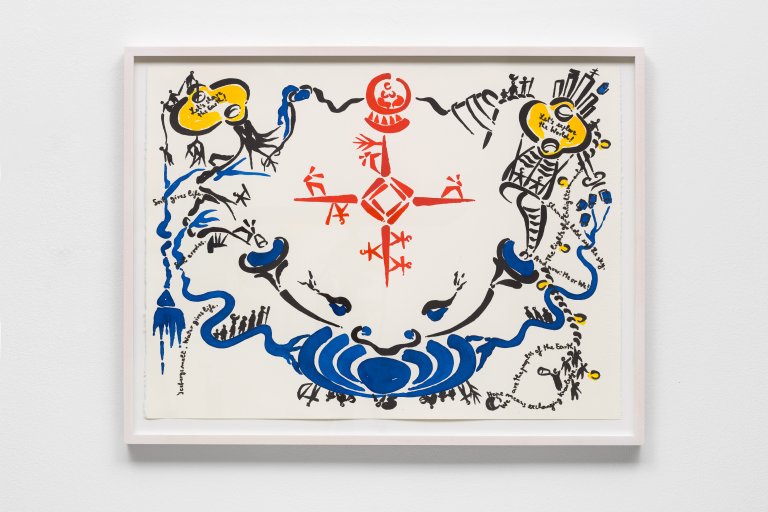
The Sami, Along with Their Ashaninka Friends, Contemplate Coexistance with the Earth, 2016, ink on paper, 56 x 76 cm, framed 63 x 83 cm
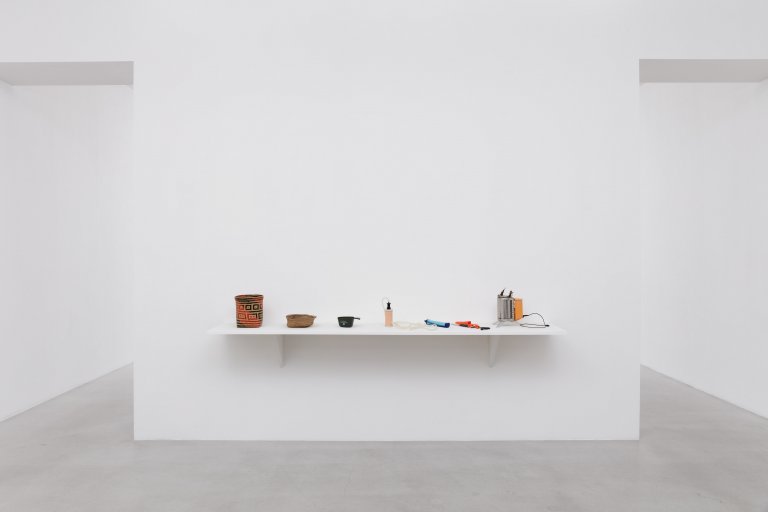
Power Tools for Rural Explorers, 2016, utilitarian objects on shelf, dimensions variable
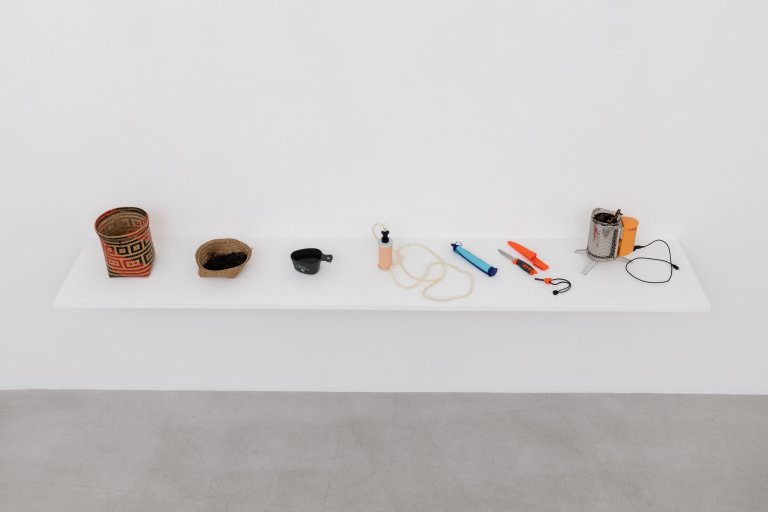
Power Tools for Rural Explorers, 2016, utilitarian objects on shelf, dimensions variable
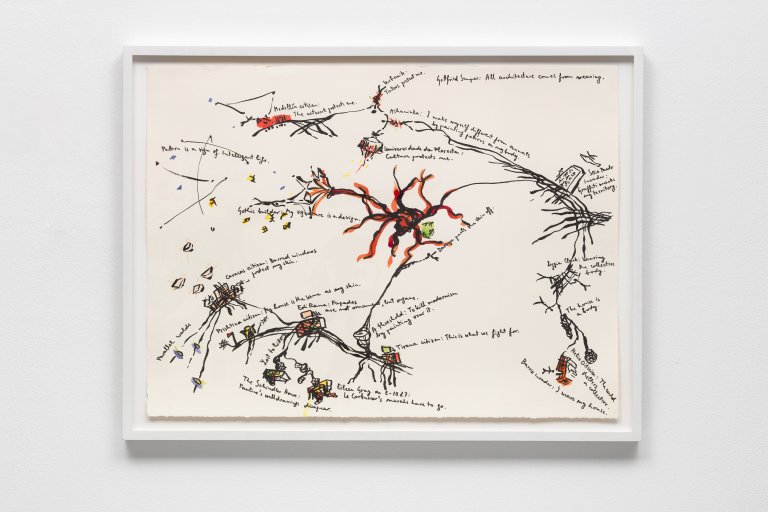
All Architecture Comes from Weaving I, 2007, ink on paper, 56 x 76 cm, framed 63 x 83 cm
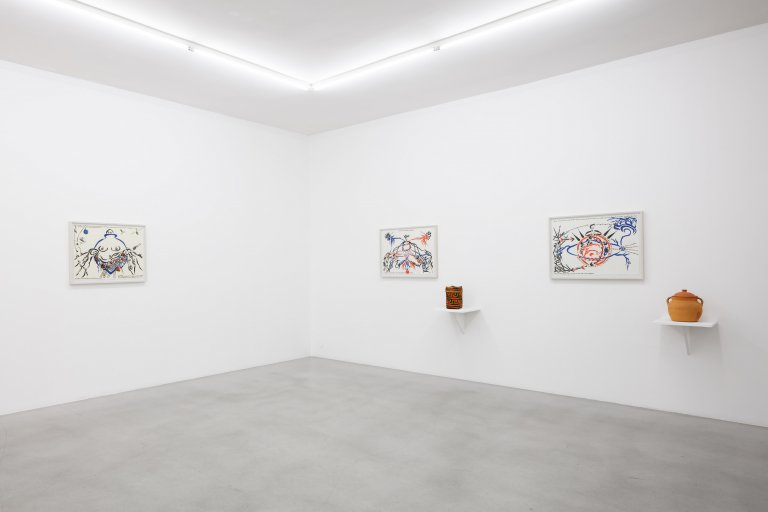
Installation view
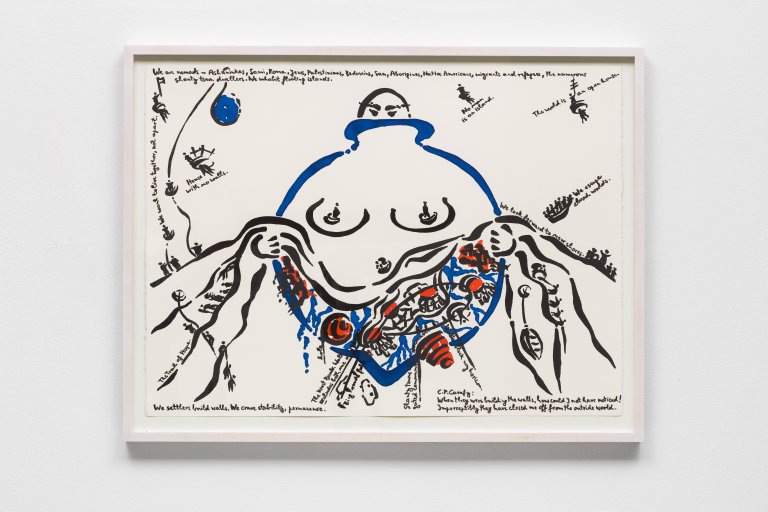
Nomads Inhabit Islands, Settlers Build Walls, 2016, ink on paper, 56 x 76 cm, framed 63 x 83 cm
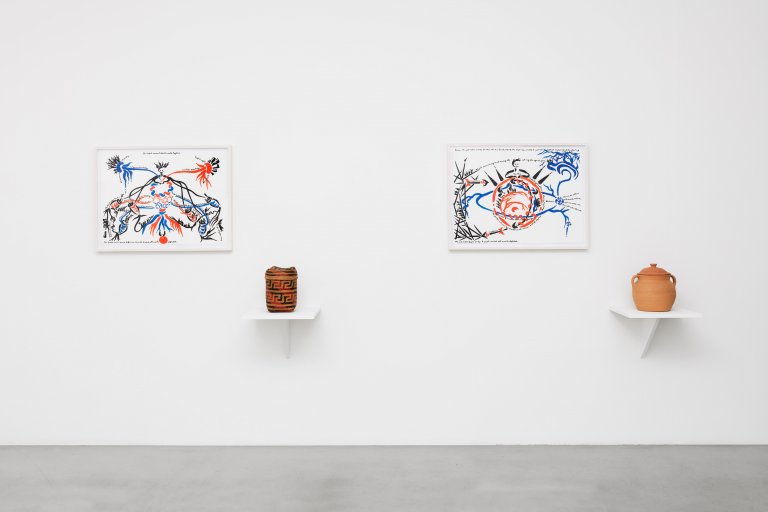
Installation view
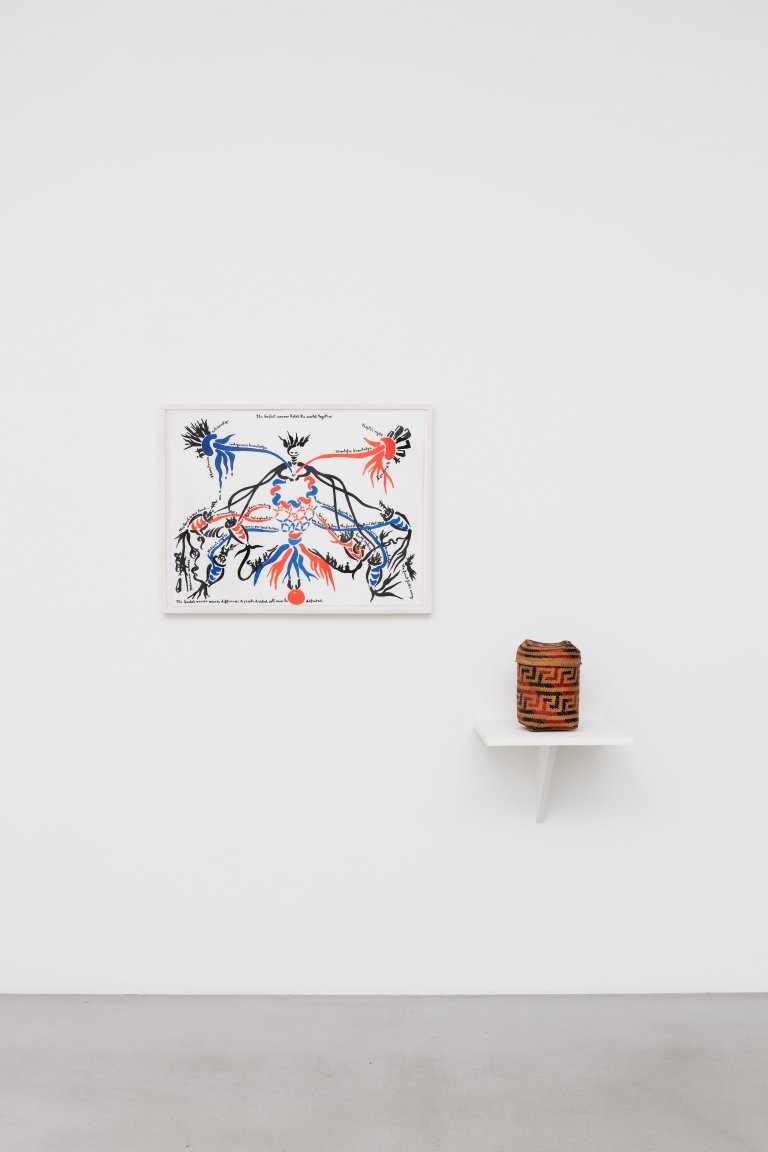
The Basket Weaver Weaves Difference, 2016, ink on paper 56 x 76 cm, framed 63 x 83 cm, fiber basket 19 x 25
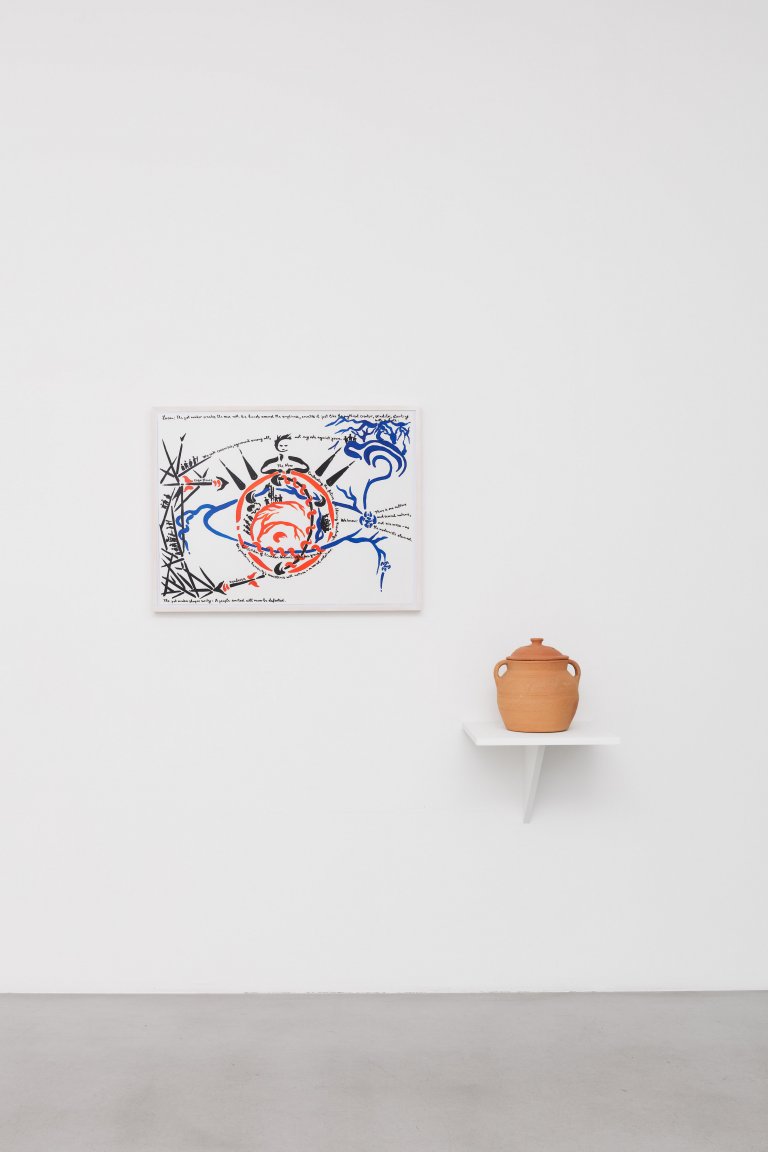
The Pot Maker Shapes Unity, 2016, ink on paper 56 x 76 cm, framed 63 x 83 cm, clay pot 26 x 28 cm
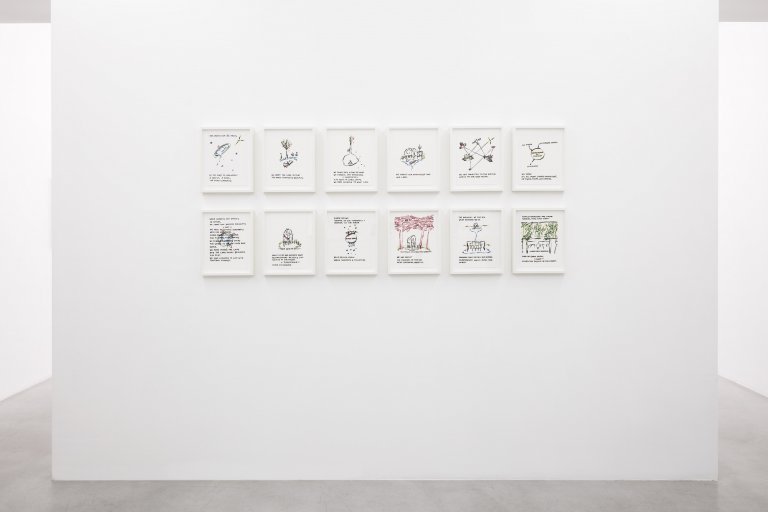
Florestania, 2006-2010, ink on paper, series of 12 drawings each 27,9 x 21,6 cm, framed 35 x 29 cm
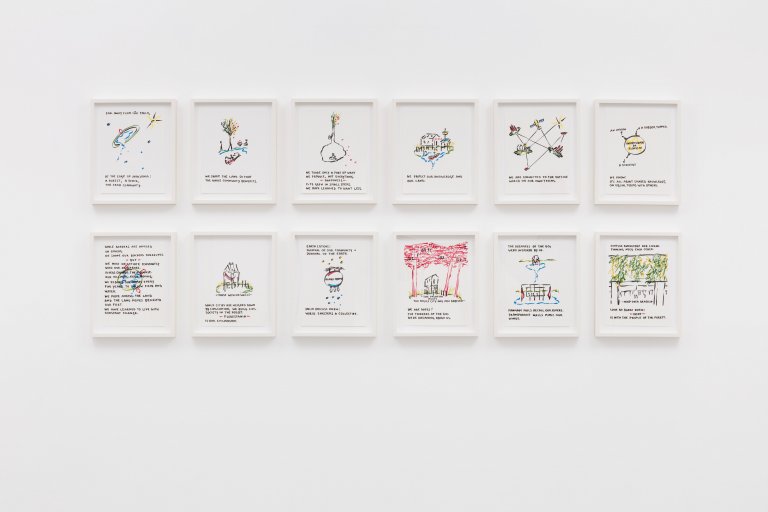
Florestania, 2006-2010, ink on paper, series of 12 drawings each 27,9 x 21,6 cm, framed 35 x 29 cm
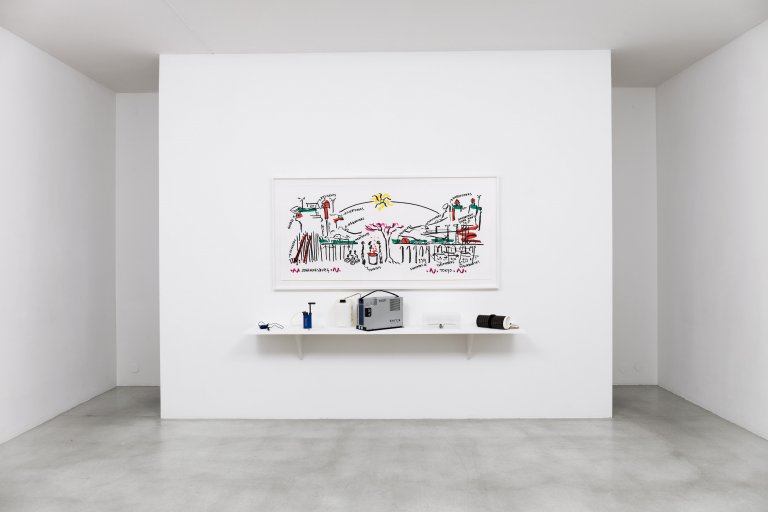
Power Tools for Urban Explorers, 2005, experimental prototypes and utilitarian objects on shelf, dimensions variable; printed drawing 85 x 185 cm
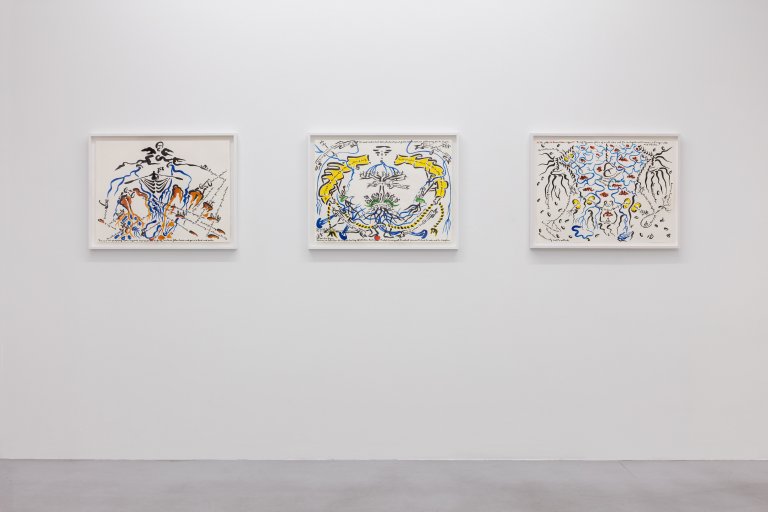
Installation view
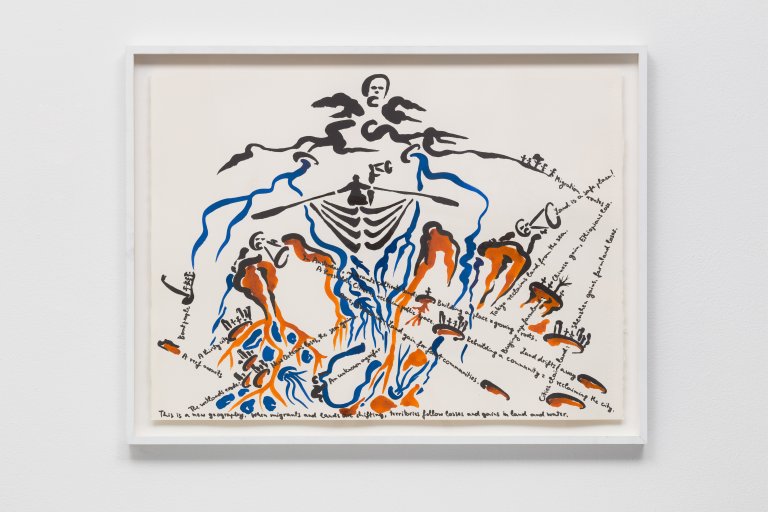
Explorers Look for Land in Times of Losses and Gains, 2009, ink on paper, 56 x 76 cm, framed 63 x 83 cm
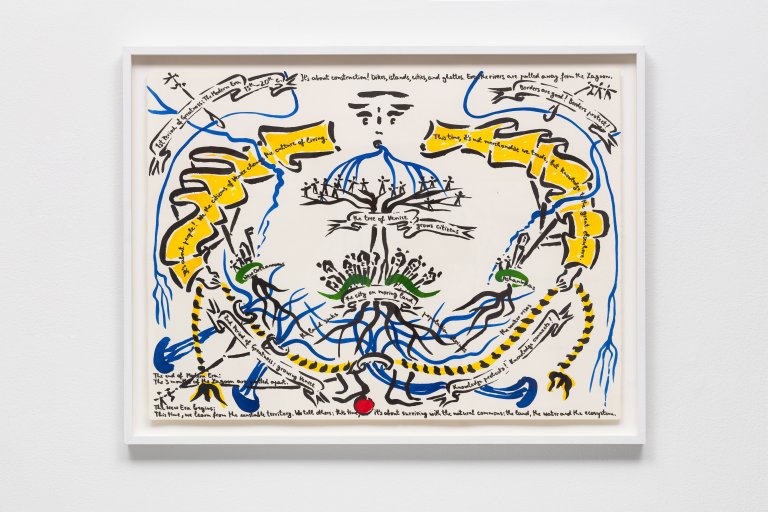
The New Great Republic of Venice, 2010, ink on paper, 56 x 76 cm, framed 63 x 83 cm
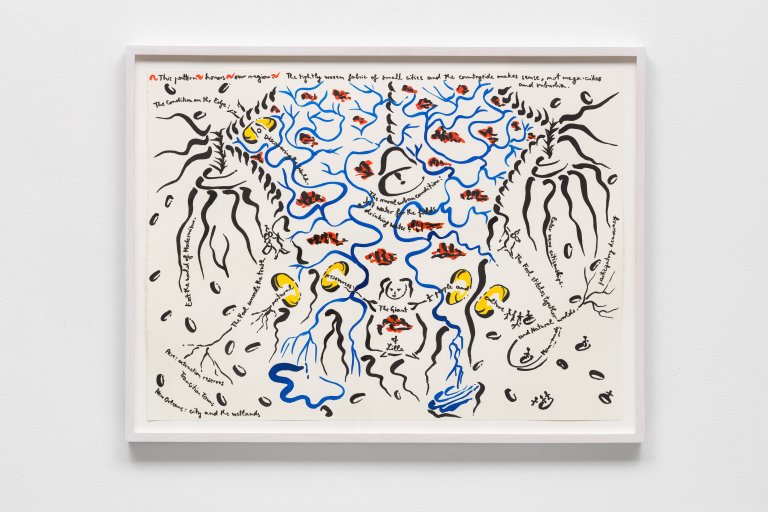
Lille: The Power of Pattern, 2009, ink on paper, 56 x 76 cm, framed 63 x 83 cm
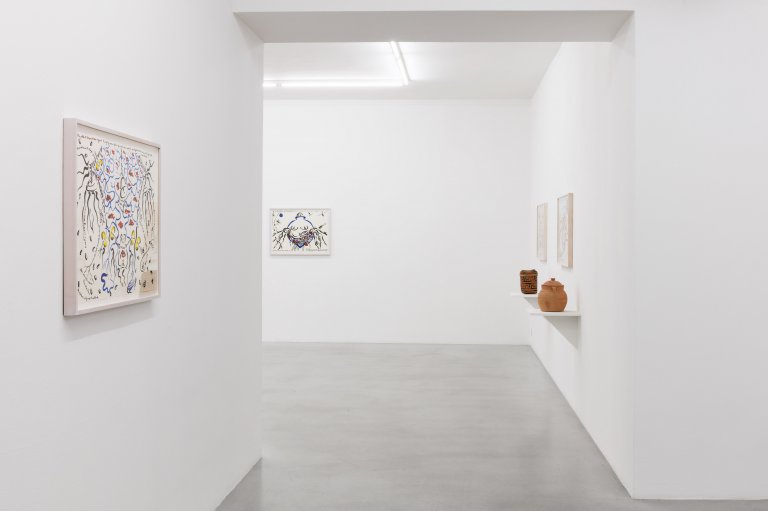
Installation view